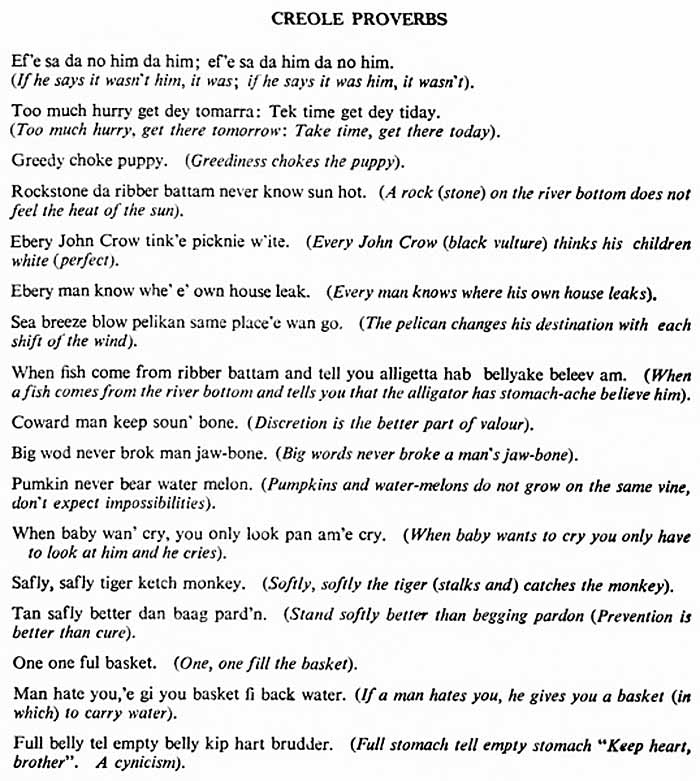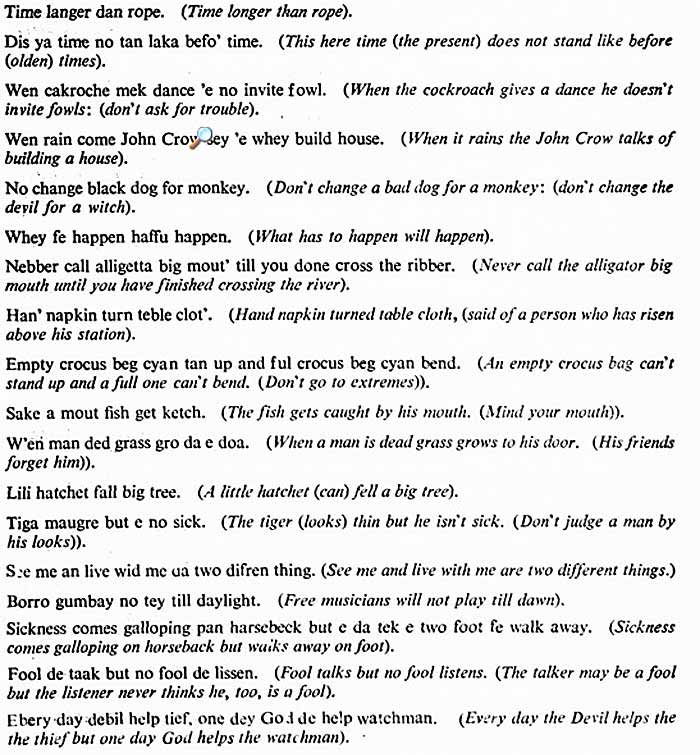More good ones....


Cow no business eeena haas gyalop
Literally: Cows have no business in a horse race.
Meaning: A man should stick to what he knows or specializes in.
Crab walk till e meet kiss-kiss.
Literally: A crab walks (leaves its hole) until it meets a "kiss-kiss" (a kind of large wooden tongs for handling hot objects or, as here, for seizing and capturing crabs, it probably received its name from the parts seeming to "kiss" as they are brought together).
Meaning: The adventurer some day meets his nemesis.
Crab walk till e meet poke-knuckle.
Literally: A crab walks until it meets pork-knuckle.
Meaning: As for the previous proverb but 'poke-knuckle' needs explaining. A piece of salted pork is a delicacy added to many Creole dishes. This taste dates back to the days of slavery when the wood-cutter was entitled to a stipulated ration of salted meat and flour, "pork and dough". The "poke-knuckle" of the proverb is therefore symbolic of the crab-stew awaiting over-adventurous crabs. The Jamaican fondness for salt-fish similarly originated in its uses as slave ration. The "soul-food" of Blacks in the U.S.A. largely derives from pre-emancipation slave food.
Cuss-cuss neba bore hole
Literally: Curses never bore holes
Meaning: Curses and abuse are harmless.
Cut stick fo brok you own back.
Literally: (to) cut a stick to break your own back.
Meaning: Create a situation from which you suffer. (cf. "Hoist with his own petard".)
Daag wid too much owner no get no bone.
Literally: The dog with too many owners doesn't get any bone. Meaning: It's not so smart to have divided loyalties.
Hag live wid e gaddi.
Literally: The hog lives with its godmother.
Meaning: This proverb is quoted to refer to something unashamedly vulgar, it is also quoted to mean "times are hard"-apparently in reference to the old custom of having a child adopted by a well-off family (that of a godparent being an obvious choice) when it is hard to make both ends meet. The origin of this proverb seems obscure.
Hanaasi say two trouble better dan one.
Literally: Hanaasi (the spider-hero in African originated folk-tales common in Belize as in the rest of the Caribbean) says two troubles are better than one.
Meaning: Quoted when someone already in trouble gets into worse trouble. I suspect this proverb was originally part of a folk-tale in which Brer Hanaasi found himself in such a predicament. Note that "Hanaasi" is variously "Hanansi", "Anansi", "Anaasi".

